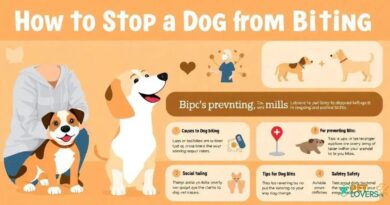What is impact of seasons on dog care
Understanding Seasonal Changes in Dog Care
The impact of seasons on dog care is a crucial aspect that every pet owner should understand. As the weather changes throughout the year, so do the needs of our furry friends. From temperature fluctuations to varying daylight hours, each season presents unique challenges and opportunities for dog care. By being aware of these seasonal impacts, owners can ensure their pets remain healthy, happy, and well-cared for throughout the year.
Winter Care: Keeping Your Dog Warm
During the winter months, the cold weather can pose significant risks to dogs, especially those with short coats or small breeds. It’s essential to provide adequate shelter and warmth for your dog, whether indoors or outdoors. Consider investing in a quality dog coat or sweater for walks, and ensure that your dog has a warm, dry place to rest. Additionally, be mindful of ice and snow, which can cause injuries or paw pad damage. Regular paw checks and the use of protective balms can help keep your dog’s feet safe during winter outings.
Spring Awakening: Allergies and Grooming
As spring arrives, so do the allergens that can affect our dogs. Pollen from blooming flowers and trees can trigger allergic reactions in sensitive pets. Regular grooming becomes essential during this season to remove excess fur and dander, which can exacerbate allergies. Bathing your dog with hypoallergenic shampoos can also help alleviate skin irritations. Furthermore, spring is an excellent time for outdoor activities, so ensure your dog is up to date on vaccinations and flea and tick prevention to enjoy the season safely.
Summer Safety: Hydration and Heat Risks
Summer brings warmth and sunshine, but it also poses risks of heat exhaustion and dehydration for dogs. It’s vital to provide fresh water at all times and ensure your dog has access to shade during outdoor activities. Limit exercise during the hottest parts of the day and watch for signs of overheating, such as excessive panting or lethargy. Additionally, be cautious of hot pavement, which can burn your dog’s paws. Regular grooming during summer can help keep your dog cool by removing excess fur and preventing matting.
Fall Preparations: Coat Changes and Outdoor Fun
As the temperatures begin to drop in the fall, dogs may start to shed their summer coats in preparation for winter. This seasonal shedding can lead to increased grooming needs, so be prepared to brush your dog regularly to manage loose fur. Fall is also a great time for outdoor adventures, as the cooler weather makes for enjoyable walks and hikes. However, be cautious of mushrooms and other toxic plants that may appear during this season, and keep an eye on your dog to prevent them from ingesting anything harmful.
Seasonal Diet Adjustments: Nutrition Matters
Just as the seasons change, so too can the dietary needs of your dog. During colder months, dogs may require more calories to maintain their body heat, while in warmer months, their metabolism may slow down, necessitating a reduction in food intake. Consult with your veterinarian to adjust your dog’s diet according to seasonal changes, ensuring they receive the right nutrients to support their health and energy levels throughout the year.
Behavioral Changes: Seasonal Effects on Mood
Seasonal changes can also affect your dog’s behavior and mood. For instance, shorter days in winter may lead to increased lethargy or boredom, while the longer days of summer can result in heightened energy levels. It’s essential to adapt your dog’s routine to accommodate these changes, providing ample exercise and mental stimulation regardless of the season. Engaging in seasonal activities, such as playing in the snow or enjoying a beach day, can help keep your dog active and happy.
Traveling with Your Dog: Seasonal Considerations
If you plan to travel with your dog, consider how the season may impact your trip. Summer vacations may require extra precautions against heat, while winter trips may necessitate special gear for cold weather. Always research pet-friendly accommodations and activities, and ensure your dog is comfortable and safe during your travels. Additionally, keep in mind that some destinations may have seasonal restrictions or requirements for pets, so plan accordingly.
Veterinary Visits: Seasonal Health Checks
Regular veterinary check-ups are essential for maintaining your dog’s health, and seasonal changes can be a good reminder to schedule these visits. Discuss any seasonal concerns with your vet, such as allergies in spring or heat-related issues in summer. Keeping your dog’s vaccinations up to date and addressing any health issues promptly can help ensure they remain healthy and happy throughout the year.




